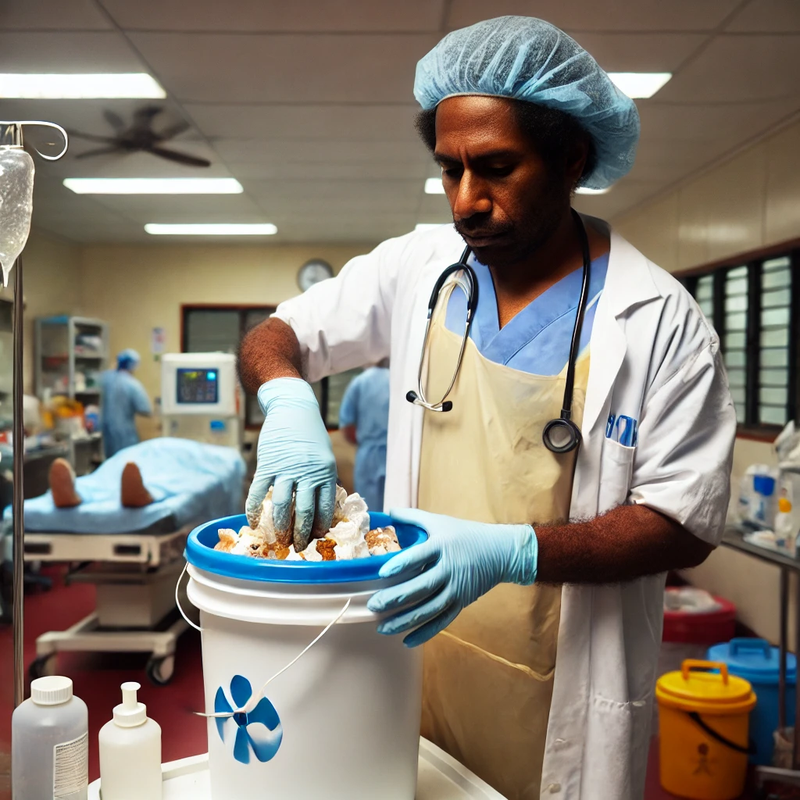General Medical & Infectious Waste Management Procedure-Niugini Medical Clinic

1. Segregation:
- Segregate infectious waste at the source to prevent cross-contamination.
- Use color-coded bins or bags for different types of infectious waste.
-All sharps and needles are disposed into sharps containers
2. Collection:
- Trained personnel should collect infectious waste using appropriate personal protective equipment (PPE).
- Ensure proper labelling on containers, indicating the type of waste and any associated risks.
3. Storage
- Store infectious waste in secure, leak-proof containers.
- Keep storage areas well-ventilated and secure to prevent unauthorized access.
- Regularly inspect and maintain storage containers.
4. Transportation
- Transport infectious waste using dedicated, authorized vehicles.
- Follow regulations for transporting hazardous materials.
- Minimize handling during transportation to reduce the risk of accidents.
5. Treatment:
- Treat infectious waste using approved methods such as autoclaving, incineration, or chemical disinfection.
- Monitor and record treatment parameters to ensure effectiveness.
- Ensure compliance with environmental regulations during the treatment process.
6. Disposal:
- Dispose of treated waste in accordance with local NCD, & National Regulations at Baruni Waste Managements Centre
- Maintain records of disposal methods and destinations for auditing purposes.
- Consider recycling or waste-to-energy options when applicable and safe.
7. Training and Education:
- Train staff on proper waste segregation, handling, and disposal procedures.
- Conduct regular refresher courses to keep personnel informed about updated protocols.
8. Emergency Response:
- Develop and communicate emergency response procedures in case of spills, accidents, or other incidents.
- Provide appropriate spill kits and equipment in designated areas.
9. Documentation:
- Maintain detailed records of waste generation, collection, treatment, and disposal.
- Ensure all documentation complies with regulatory requirements.
10. Regular Audits:
- Conduct regular audits to assess the effectiveness of the infectious waste management process.
- Implement improvements based on audit findings.
Always consult with local health and environmental authorities to ensure compliance with specific regulations in your region.


